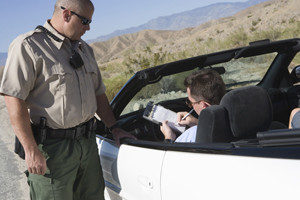
 One of the most unpleasant factors in a DWI arrest, and certainly in Nassau County, is when the county attempts to seize your vehicle as an instrumentality of the crime, and in Nassau County they have created a special section under their administrative code which gives the county the opportunity to seize a vehicle if there has been a DWI conviction. When a client comes to us, and often clients that we represent for driving while intoxicated offenses, we prepare them for this particular event.
One of the most unpleasant factors in a DWI arrest, and certainly in Nassau County, is when the county attempts to seize your vehicle as an instrumentality of the crime, and in Nassau County they have created a special section under their administrative code which gives the county the opportunity to seize a vehicle if there has been a DWI conviction. When a client comes to us, and often clients that we represent for driving while intoxicated offenses, we prepare them for this particular event.
It doesn’t happen in every case. For example, there are villages in Nassau County that do not proceed for the civil forfeiture of your vehicle, but the County of Nassau, if they decide to go after your vehicle, have a retention hearing at the very outset of your arrest, and you may be required to post a bond depending upon the circumstances. What happens then is that the County of Nassau files a summons and complaint seeking the seizure of your vehicle, and they put restrictions on what you can do with the vehicle pending the prosecution of the case such as you can’t transfer it without notice to the county, you may again, as I’ve indicated, put a bond on the car so that if the car is lost or stolen or destroyed, that the county can still have access to it – to the funds. What happens is that the once the summons and complaint is issued, usually the attorney will be granted an adjournment by the county attorney, and they will wait until the time that the action is over.
if it’s the only car in the family, that it would be a financial hardship to buy another car, that there are certain special needs that the individual has. What happens is we oppose the motion for summary judgment, and in it we ask pursuant to the statute that we be permitted to petition the court for this relief from the forfeiture of the vehicle and with it argue that its forfeiture would be an unwarranted and substantial hardship, and we argue the various reasons I’ve indicated of a financial hardship, a personal hardship, the inability to get to work, the possible loss of employment, and make the argument to the judge with documentary evidence to support our position.
If you are in need of legal counsel in New York State, please feel free to contact Grunwald & Seman, P.C. and we would be happy to assist you.
